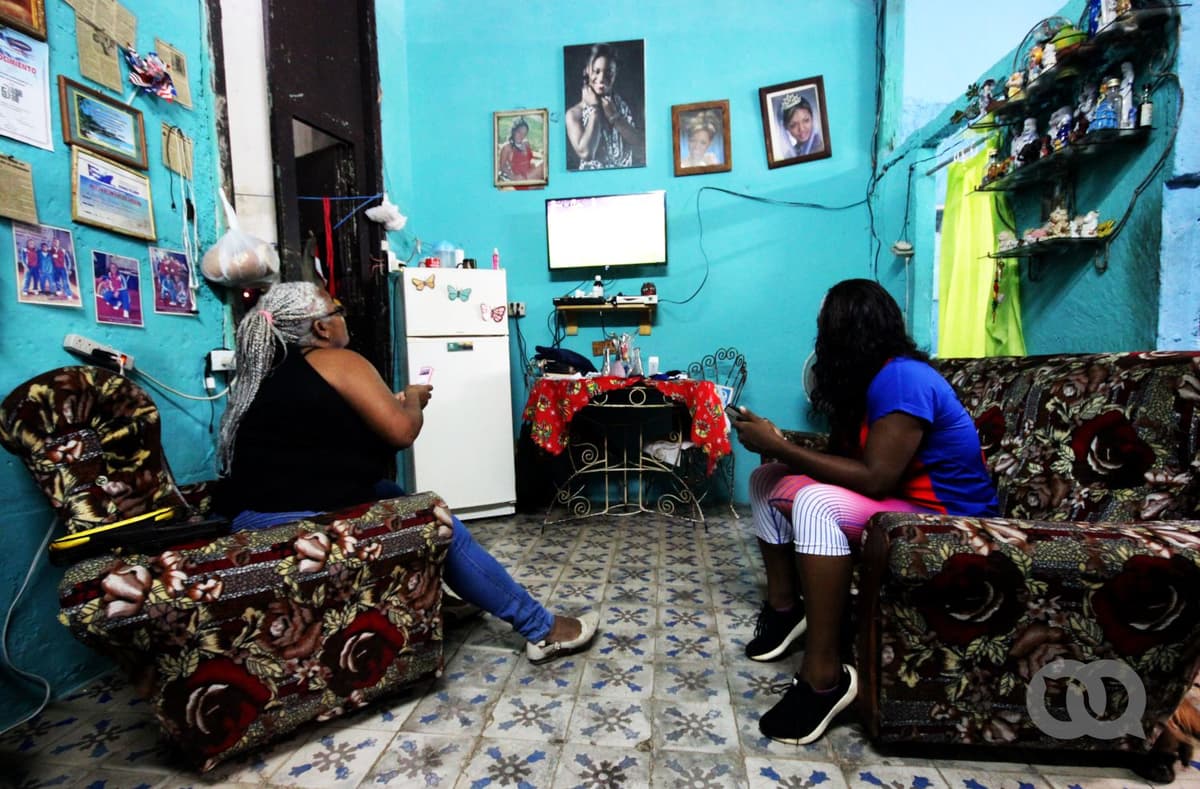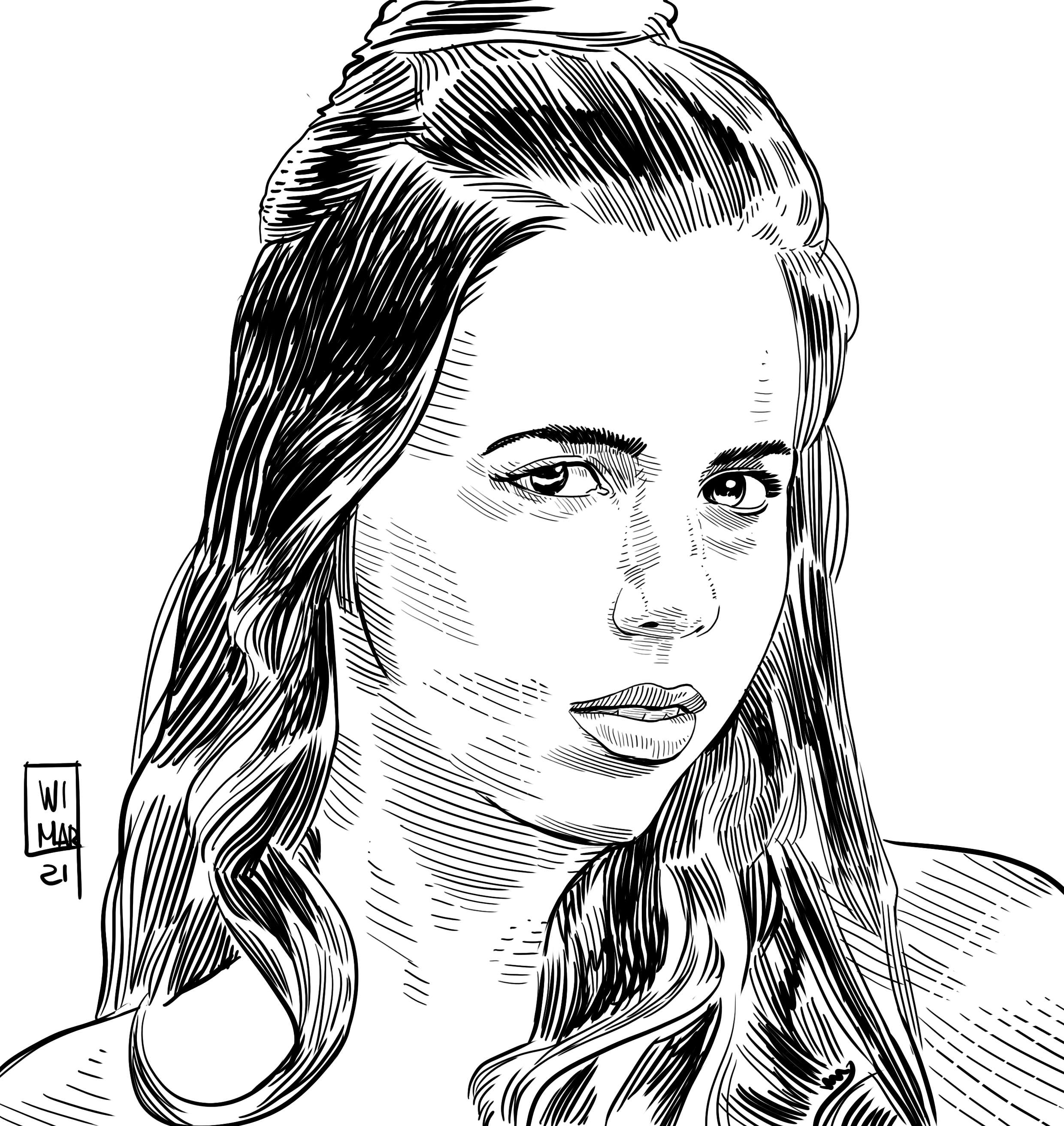When the diving champion of the 2018 Central American Games in Baranquilla isn’t in the swimming pool, she’s at home. That’s where she trains now, as best she can, getting creative. Anisley Garcia Navarro is shy in her gestures and voice. However, she is the same person we see jumping into water from 10m high, on our TV screens.
If it hadn’t been for the COVID-19 pandemic that postponed the 2020 Olympics in Tokyo, 18-year-old Anisley might have made her dream of going to the Olympics and then getting a tattoo of the five rings to remember the event. First she had to qualify at the pre-Olympics.
“That is my greatest dream. This and being one of the top 15 divers in the world. I remember being two years old and watching the 2004 Olympics, at six. I was sleeping in my living room so I could watch all of the 2008 Summer Olympics in Beijing. They were being broadcast during the night because of the time difference,” she remembers.
When people talk about Anisley, they don’t always say her name, but call her by her nickname: la Tuti. She got the nickname as a baby from Maria Elena Carmuza, who would later be her first trainer.
La Tuti lost her childhood in the swimming pool. That’s how she remembers it. There could be no room for mistakes for her. Hilda, her mother, also believes this. She didn’t have time to play, go to the movies, to a park…
She doesn’t even have time now to do those things. When she travels to international competitions, she only thinks about training. More so if it’s a big event because she has to take part in both the youth and adult categories. So, she must make seven or eight appearances, when other participants are only making three or four.
“Anisley would cry and cry before, saying that she wasn’t allowed to do anything, that she couldn’t go out and always had to go to bed early. She doesn’t do that anymore, she’s more mature. But the pressure is just as much,” says her no.1 fan: her mother. She now splits her time between training and her third and last year of her vocational diploma at the School for Physical Education Teachers. On holidays and the weekend, she likes to watch series and movies with her boyfriend.
She would watch her sister Yanisleidys train and wanted to copy her, but she was very young, she wasn’t allowed to… until one day. Carmuza let her show her what she knew, and she was in for a huge surprise. Anisley had learned every movement just by watching. But she was afraid of heights and didn’t know how to swim. After jumping into the water, they reached a stick out to her so that she could grab onto it and reach the ladder.
Her sisters are athletes, both of whom are instructors today, one of diving and the other one of weightlifting. The three of them grew up at the Sports Complex where Hilda, their mother, has been working for over 30 years.
Anisley believes that these problems are outside of the Sports Institute’s (INDER) control. “I believe they do all that they can. They don’t work at ETECSA to set me up with a phone, or in housing to give me one or to fix this one up.” Hilda thinks differently: “I’ve been called to see a few places, but in remote places or places falling down. I’d prefer to stay here, if that’s the case. They told me some time ago that the case was referred to the provincial Government. However, we still haven’t received a response. We’ve been like this for almost two years now.”

Hilda and Anisley watch the game between FC Barcelona and Real Madrid in their living room. Both are fans of Real Madrid. Photo: Alba León.
The diving champion looks deep into your eyes. She speaks so quietly that the recording machine just about picks up a murmur. However, she has a strong character that makes her seem older, “an old woman in her head,” her mother says half-jokingly.
Anisley feels like she’s at a disadvantage during a competition because she gets worked up, sometimes she cries. She puts herself under great pressure. She hasn’t got used to leaving behind school competitions and competing against the world, against the best from other countries.
“I believe that I could have done a bit more, but my lack of concentration and even self-esteem, have stopped me. With one or two details, I might have gone to an Olympics and been a bit more recognized. The latter really has an impact when it comes to the ratings,” she says.
When Anisley was 16 years old, she won the Central American Games at Baranquilla in 2018, and it had been 12 years since Cuba had won a medal and 25 years since a woman had won the medal.
“La Tuti always has to come out winning, she has to stand out; she has to, has to and has to… It’s better to surprise others, rather than be expected to get something and then not get it. I have to now, but I don’t like it.
Anisley says that she is an atheist, but sometimes she lights a candle for San Lazaro and asks him to let everything go OK. She doesn’t like to change her bathing suit or chamois cloth before an event if she’s trained with them a long time. She doesn’t normally listen to music between dives and doesn’t care about the cameras or other people watching her.
“Do you watch recordings of you diving?”
“No, I don’t like to.”
“Not even to correct yourself.”
“That’s what my teacher’s for.”
Her life is a constant challenge, and she can’t think of it any other way, in any other place, far from sports, swimming pools and the diving board. Anisley says that all the sacrifices she’s made up until now, the days without playing games and not staying up late, have been worth it. She’s sure of this and repeats the mantra: “If you don’t push yourself, you won’t ever come out winning.”
This article was translated to English from the original in Spanish.















